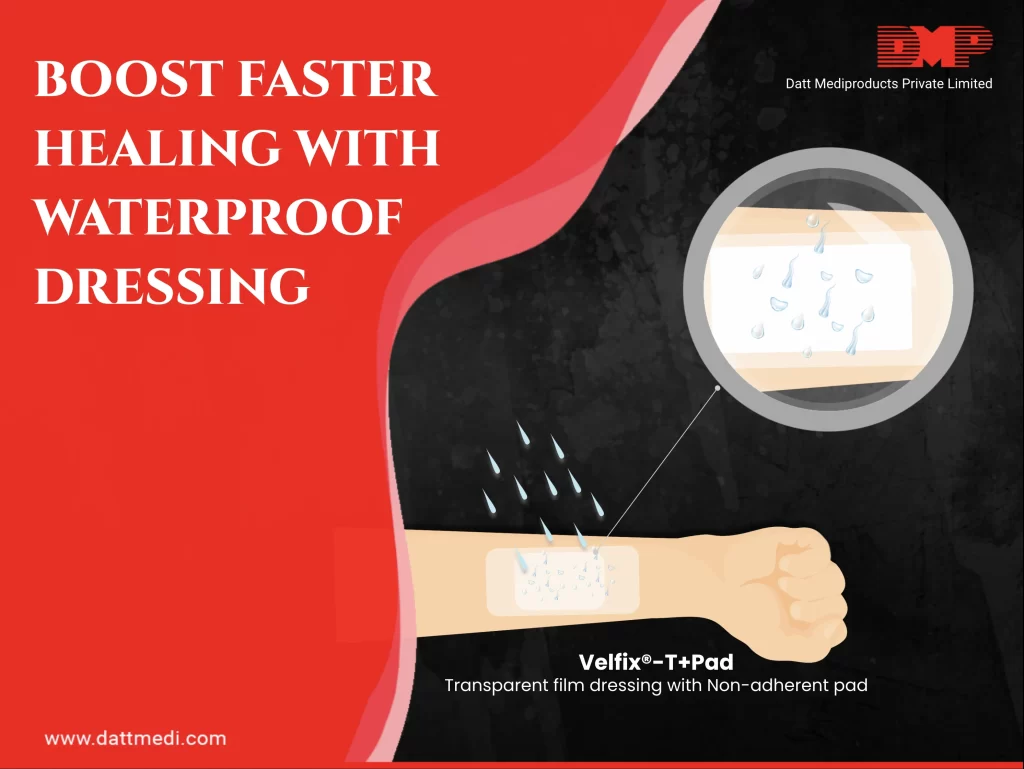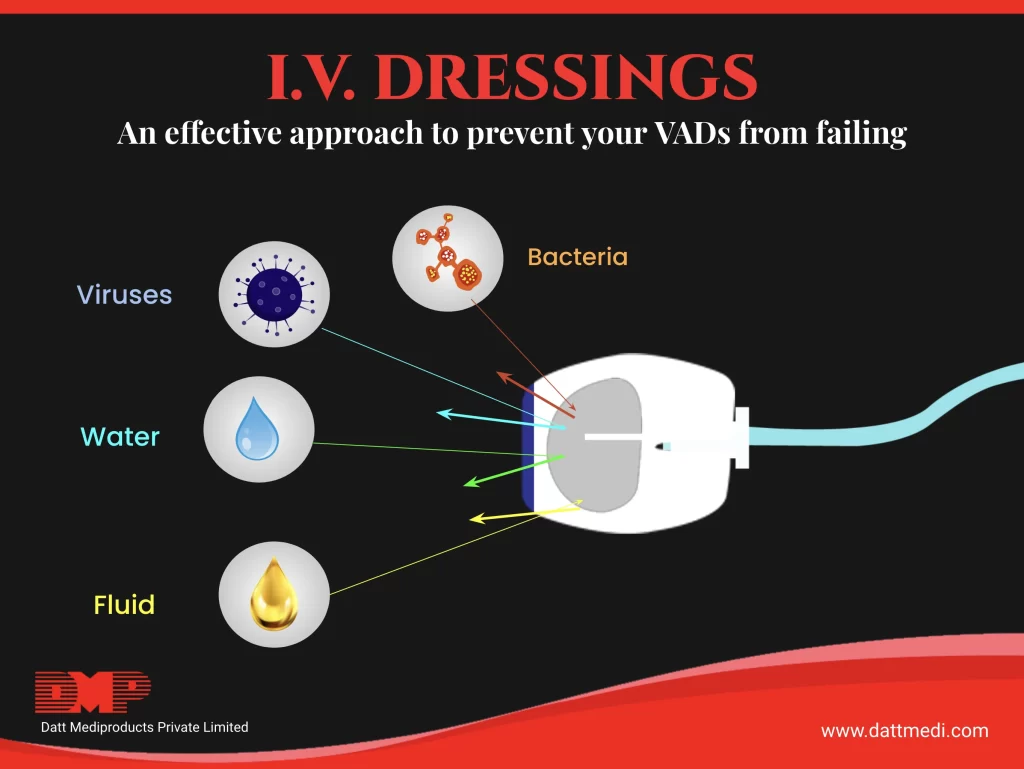
Waterproof dressings are transparent film dressings comprised of Polyurethane (PU) film coated with adhesive. They offer a transparent, waterproof film layer that serves as a bacterial barrier.
Although the dressings do repel water they are still porous and thus breathable. This aids in providing an environment that is moist, leading to faster healing. They are ideal for the protection of wounds as they seal out water, dirt and germs; therefore decreasing the chances of infection.
Being very flexible, they act as a second skin. Protecting the wound from bacterial invasion and abrasions, even in uncomfortable bony areas, of the body, like the elbow or the knee.
Let’s find out the areas where they can be beneficial:
– Post-operative wounds
– Acute wounds (Abrasions & Laceration)
– Small or medium exudate level chronic wounds
– Sterile I.V dressing in cannula fixation
Datt Mediproducts manufactures a range of waterproof dressings under the brand name of Velfix. One of our dressings is Velfix- Edge, providing an effective way to secure and stabilize the cannula fixation.
It has numerous advantages such as:
– Its design allows for continuous observation of the site and reduces the risk of catheter dislodgement.
– The Unique Coat technology with patterned adhesive delivers a high and constant strength, while being gentle to the fragile skin.
– The dressing is Latex free & hypoallergenic acrylic adhesive that gently, yet securely adheres to the skin.
– It’s easy to mould around corners of the body allowing for easy movement.
– The 30 μ thick PU film ensures increased breathability & softness.
Let’s find out the essential usage information
At the time of applying the dressing, it should be smoothed or stretched out, so that it exceeds the wound area by about an inch on all sides. The removal of the dressing should be done carefully and slowly starting from the edges first and then towards the centre to prevent skin tear.
Normally these dressings should be changed within 3 to 5 days, but they can also be left on upto seven days, if the wound does not have excessive exudate. If there is any irritation or any leakage or the film loosens, it should be changed immediately.
Here are some things to consider before using waterproof dressings:
Even though the dressing can be used in most cases, there are a few cases where it is advised not to use them or to talk to your physician before applying.
Waterproof dressings should not be used on patients that have heavy exudates such as massive burns, fungal infection, active or suspected infection or herpetic lesions.
Certain waterproof dressings can also lead to periwound maceration (breaking down of the skin surrounding the wound).
Thin-skinned patients, like old people or people undertaking steroids, should not use the waterproof dressings as at the time of removal of dressing it may cause skin tears or epidermal stripping.
Still thinking why waterproof or transparent dressings?
Because the transparency makes it easy to visualize the wound bed. For more information visit www.dattmedi.com or contact us at info@dattmedi.com



